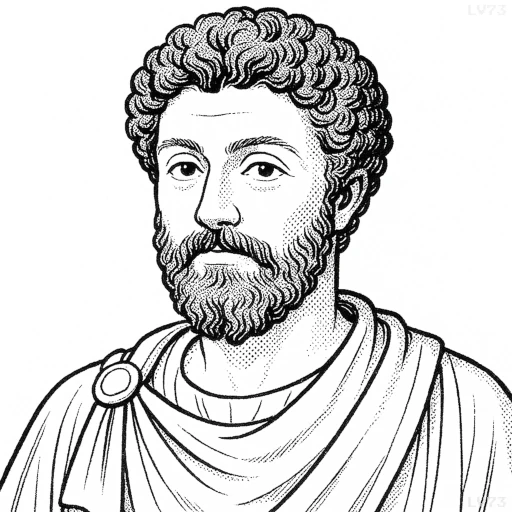“We are too much accustomed to attribute to a single cause that which is the product of several, and the majority of our controversies come from that.”

- April 26, 121 – March 17, 180
- Roman Empire
- Roman Emperor
table of contents
Quote
“We are too much accustomed to attribute to a single cause that which is the product of several, and the majority of our controversies come from that.”
Explanation
Marcus Aurelius highlights a common human tendency: the desire to simplify complex situations by attributing them to a single cause, rather than recognizing that many factors often contribute to an outcome. This over-simplification leads to misunderstandings and disagreements. Aurelius, a Stoic philosopher, understood that life’s challenges are rarely the result of just one factor, and that a deeper understanding of the interconnectedness of circumstances is necessary to avoid confusion and conflict.
During his reign, Aurelius faced the complexities of governing a vast empire, where numerous social, political, and military factors interplayed in shaping events. His reflection on human tendency to oversimplify highlights his wisdom as a ruler and a philosopher. This idea is still relevant in modern times, especially in areas like conflict resolution, political discourse, and psychology, where issues are often blamed on singular causes, leading to polarized opinions and unresolved tensions.
In everyday life, this quote encourages us to approach problems and conflicts with a more holistic perspective, recognizing that multiple influences contribute to any situation. For example, when facing a workplace dispute, instead of attributing it to one person’s actions, we might consider the broader context, such as workplace culture, communication issues, or external pressures. By acknowledging the complexity of any issue, we can avoid unnecessary conflict and foster a more constructive dialogue.
Would you like to share your impressions or related stories about this quote in the comments section?


